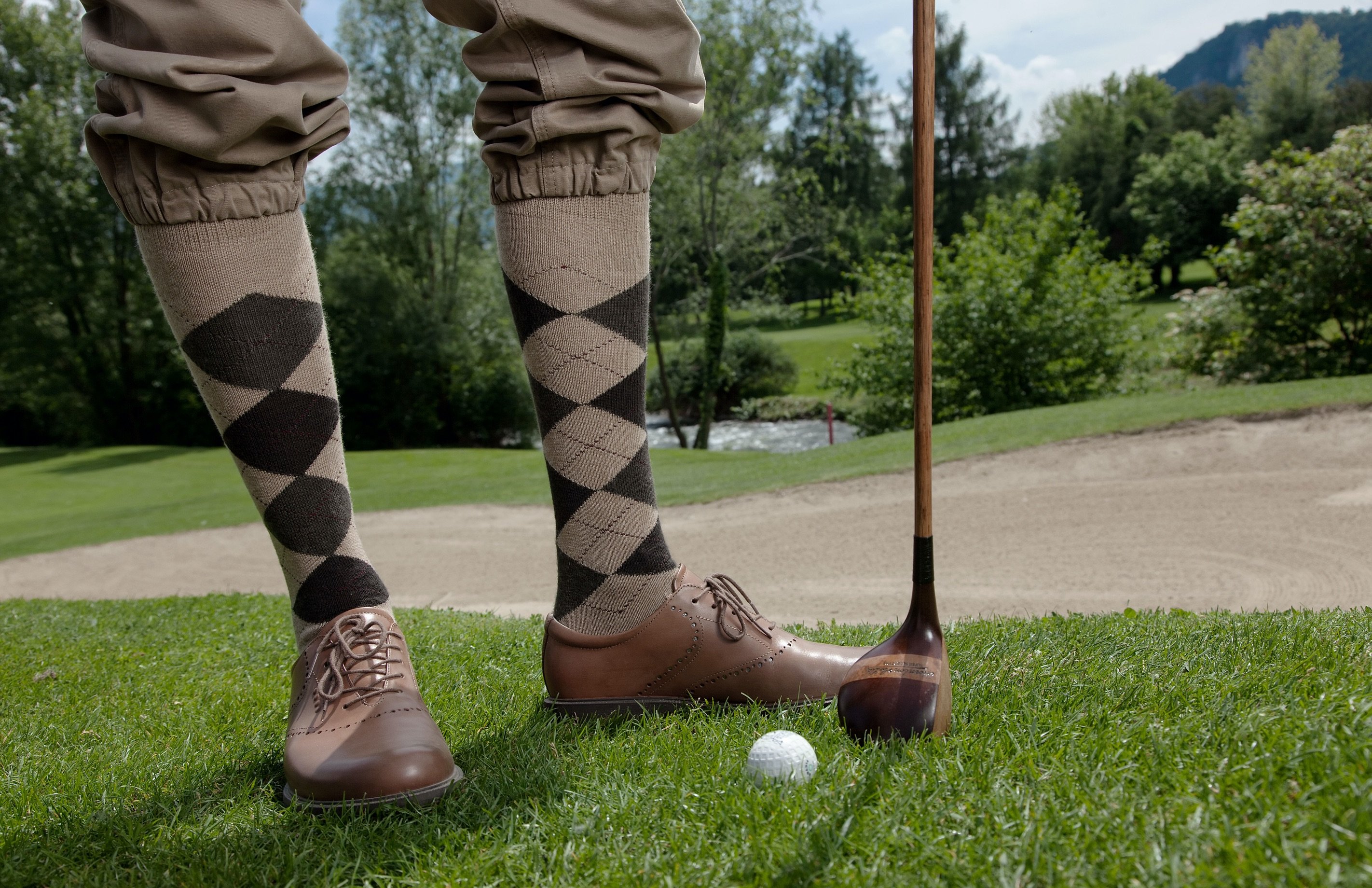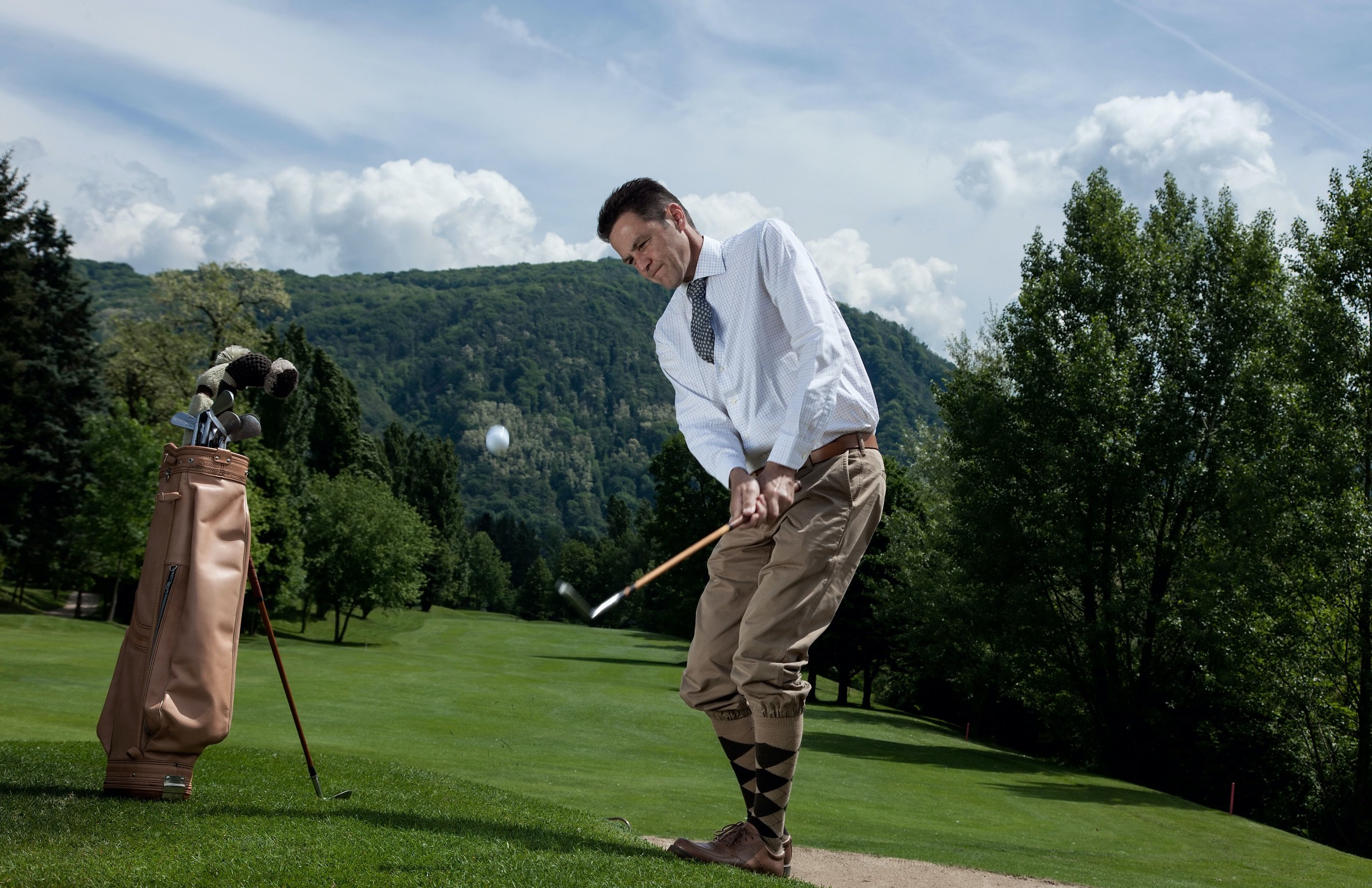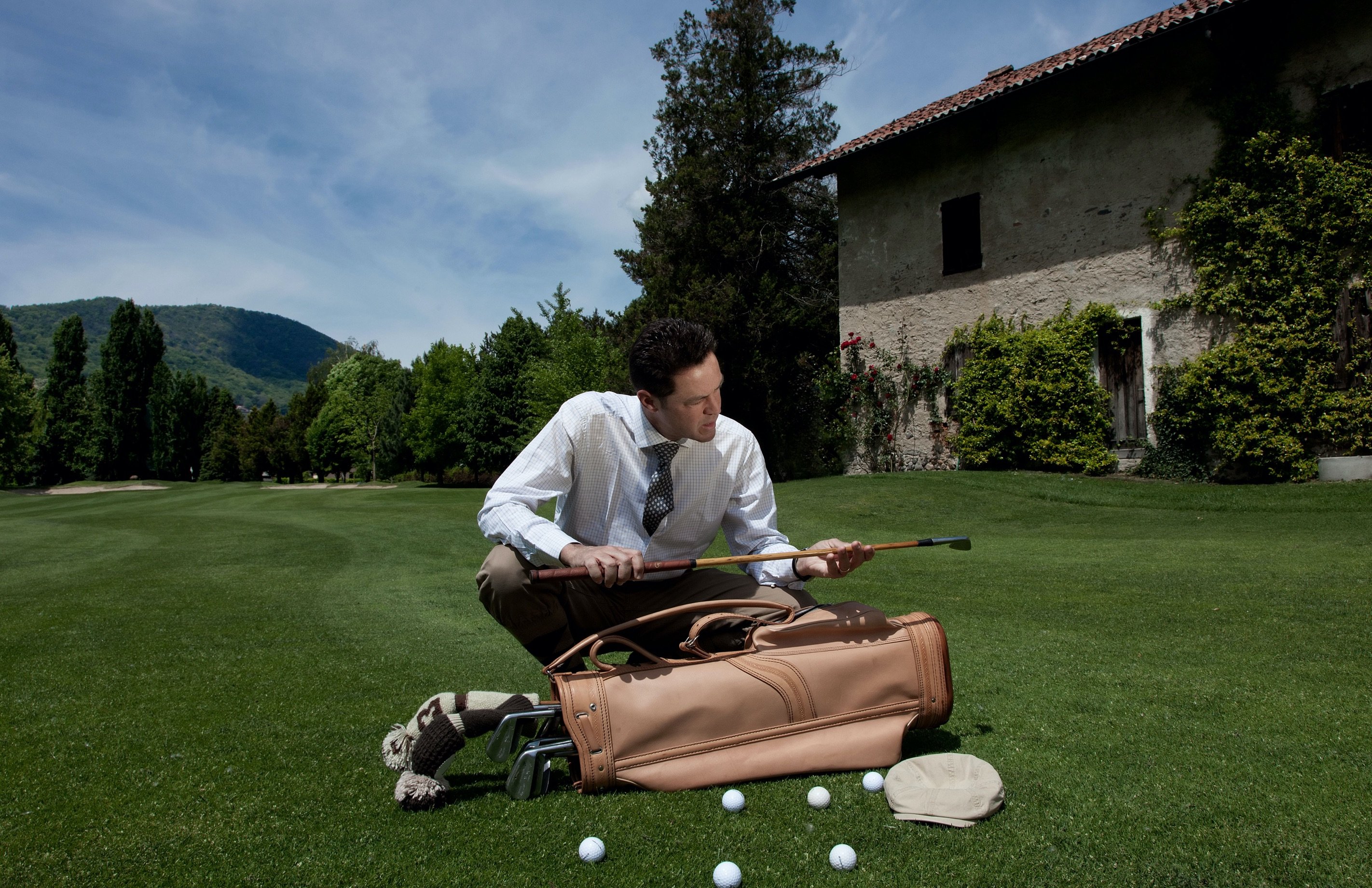Switzerland’s most successful professional golfer, Paolo Quirici played on the European pro circuit from 1989 to 2001. He recently took up hickory golf, winning the US Professional Hickory Championships in 2013 and 2014. And at the World Hickory Championship in Scotland he won in 2013 and earned an outstanding 2nd place behind Sandy Lyle in 2014. He has recently been appointed Sport Director at the Swiss Golf Association (ASG). He also runs his own golf school, based at the beautiful Golf Club Lugano.
How does hickory golf differ from standard golf?
The idea is to play with the same wooden-shafted clubs that were used in golf before 1930. In Europe, you are allowed seven clubs and they have to be genuinely of the period, not replicas. These seven clubs are named, not numbered, and range from a driving iron to a niblick, through cleek, mashie, spade mashie, and mashie-niblick. Clubs were made individually, so you need to look hard to find a set that is matched in weight and flexibility. I was lucky enough to buy a set of irons that belonged to the English pro Ernest Jones. He was remarkable: he lost half his right leg in the First World War, but managed to play on one leg to the same handicap mark! He then went on to become one of the most influential teachers of the game in America. I maintain and repair the clubs myself. You feel close to your equipment: it is what makes you the player you are. It’s like love, a trust and belief that this club can make a difference. It has its history, the story of those who came before. When I bought these irons, the man who sold them asked me, “Are you actually going to play with these? “ I answered, “What do you think Mr. Jones would want me to do?”

How does the game differ when playing with hickory-shafted clubs?
The feel is very solid, almost stiff, with lots of twist – more than ten degrees. If your timing is even slightly off, you can lose it a long way to the right or left. Modern drivers all have huge heads, precision weight placement, and so on. With the hickory-shaft woods, a very good drive is 240 yards, but it is very rarely straight. You have to be much more inventive around the greens; there is no bounce, no loft. The proper approach in the air is very difficult and delicate; you chip and roll, you don’t fly. For all these reasons, I guess the biggest difference is that a good shot pleases you a lot more. And the original links-style courses play so much better, because the ball rolls a long way: it’s how they were designed to be played. And that’s a real pleasure: if I had a choice, I would always want to play on a good links course.
What inspired you to become a golfer?
I started when I was seven, following my father around. I just liked the game: I liked the idea that I was competing against the course, not against others. Being out in nature – like fishing, which I also love – is a way to enjoy life fully. Pleasure just comes naturally from such places: a good links course, sun, a little wind to make it interesting. To imagine myself as something other than a golfer… it’s impossible.

What’s been your most satisfying moment on the golf course?
There are moments every day. The funny thing is that you can have an average round with one really good shot, and it makes your day. You go home satisfied with having solved that one challenge. This is true even for people who play a lot at a high level. You need to be able to be pleased about what happened. It’s a question of attitude: you understand and you accept what the experience will be. The best part is that you enjoy it even more as you age. Young players mature in their skills very quickly, but along with the skills you need understanding. The first and most difficult opponent is yourself; then comes the course. So you try: try to gain a small advantage, a stroke here or there. No matter what your level, if you gain that advantage, you can feel you’ve won a victory.
Switzerland has many sporting achievements for a small country; why are there so few Swiss golfers at top levels?
It’s a real concern. Our younger players are working hard, getting support at an earlier age, gaining international experience. But they have very intense demands from school at just the same age when they need to develop most as golfers. You do what your studies demand, but that is time away from golf. Of course studies offer some certainty about making a living later; golf doesn’t.

You run a golf school: how do you transmit skills?
The most important thing we can pass on is passion. To fully understand why this game has been around for so long. It takes a long time to learn: even with video equipment, 3D assessment, biomechanics, if you start today, you will be a beginner for ten years. But the intriguing part of the story is learning about yourself, your response to success and failure, You learn something every time you go out on the course. It’s improving, always improving. I’ve played for forty years and I’m still learning.
What are the things that anyone could do to become a better golfer?
Confidence is good, you need to have high expectations – then to learn to balance that confidence with understanding of your capabilities and of the game. Most important is an acceptance of what’s going to happen. You need to be true to the game: if you make a mistake, you accept it. If you are tempted to pretend it didn’t happen, don’t. You would only be stealing from yourself.

Does golf have values or lessons that apply to other parts of life?
Golf is a tremendous school for life. Every time you step up to the tee, you are part of a living tradition. It puts you right in front of yourself every day: it shows that there is a right and a wrong way to compete and succeed. You learn how to act properly with yourself and others and it becomes part of your personal growth.
Wanderful Take
Change the Game. The closer you look, the more interesting life is. Throw out the new bag of gleaming, anonymous clubs and grasp the mashie-niblick with its wealth of history; it has lessons to teach you. Seen through the right eyes, a walk around eighteen holes becomes a journey to self-knowledge. Confidence and acceptance, always improving, always learning… makes your world Wanderful.

